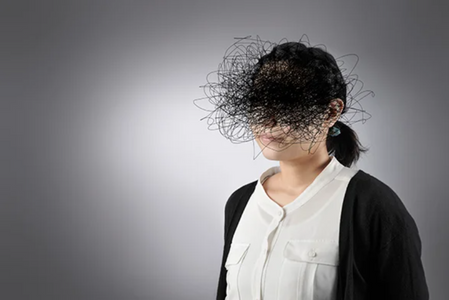Anxiety
Anxiety Disorders
Everyone experiences temporary anxiety sometimes, but intense and persistent worry and fear about everyday situations may be a sign of a clinical anxiety disorder. The providers at Sulcata Psychiatry have extensive experience treating anxiety disorders and obsessive-compulsive disorder (OCD) at Sulcata Psychiatry in Houston, Texas. Call the office or request an appointment online today for personalized, compassionate anxiety treatment. Telehealth is available.
About Anxiety
What are anxiety disorders?
Anxiety is a normal emotion that actually serves an important purpose. When you face a dangerous situation, the fight or flight response increases your vigilance and alertness to help keep you alive.
An anxiety disorder is when these feelings of worry, fear, or nervousness are excessive, persistent, and not in response to a real threat. An anxiety disorder can manifest as constantly thinking about what might go wrong, assuming the worst-case scenario, or convincing yourself that people are judging you.
If this sounds like you, rest assured that you’re not alone. Anxiety disorders are the most common type of mental health condition, affecting nearly 30% of adults at some point in their lives. You don’t have to feel suffocated by anxiety; Sulcata Psychiatry can help.
What are the types of anxiety disorders?
There are many types of anxiety disorders. A few of the most common anxiety disorders include generalized anxiety disorder, panic disorder, and specific phobias. Social anxiety is a phobia involving fear and avoidance of socializing with others. Other conditions that cause anxiety include obsessive-compulsive disorder (OCD) and post-traumatic stress disorder (PTSD).
What are the symptoms of anxiety?
People with anxiety disorders can experience a wide range of signs and symptoms, such as:
- Feeling nervous, restless, or tense
- Feeling tired
- Trouble sleeping
- Unexplained chest pain
- Rapid breathing
- Sweating
- Trembling
- Increased heart rate
- Difficulty thinking about anything other than the current worry
- Having the urge to avoid things that trigger anxiety
- Gastrointestinal problems such as nausea, diarrhea, or constipation
Anxiety can leave you feeling physically and emotionally exhausted, which can lead to bouts of depression.
How is anxiety diagnosed and treated?
At Sulcata Psychiatry, we specialize in evaluating and managing symptoms of anxiety. Your first visit involves a thorough psychiatric evaluation with multiple tools and technologies that allow her to understand your specific needs, such as cognitive testing. Our providers take time to get to know you and make you a partner in your anxiety treatment plan.
The goal of treatment is to provide both education and relief. We can introduce you to resources that help you learn about your particular diagnosis, treatment options, and targeted interventions you can do on your own.
Anxiety treatment often includes medication management combined with psychotherapy, but your provider may also recommend lifestyle changes involving nutrition, exercise, and sleep habits. To determine the best type of medication for you, we may also suggest in-office Genomind® pharmacogenetic testing.
To learn how you can manage anxiety and improve your life, call Sulcata Psychiatry today or request an appointment online.
















